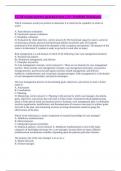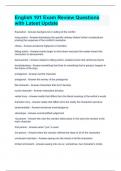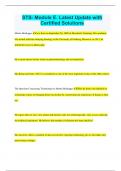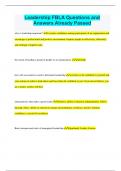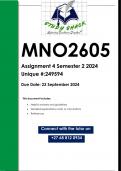Exam (elaborations)
CCM exam secrets practice test || A+ Verified Solutions.
- Course
- Institution
Which evaluation would you perform to determine if a client has the capability to return to work? A. Pain tolerance evaluation. B. Functional capacity evaluation. C. Disability evaluation. D. Evaluation by client interview. correct answers B. The functional capacity exam is a process of as...
[Show more]
